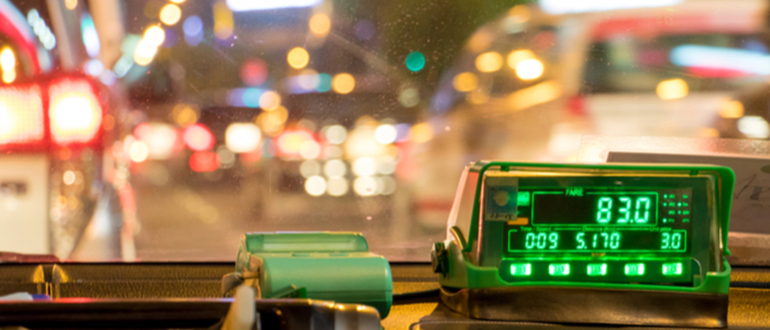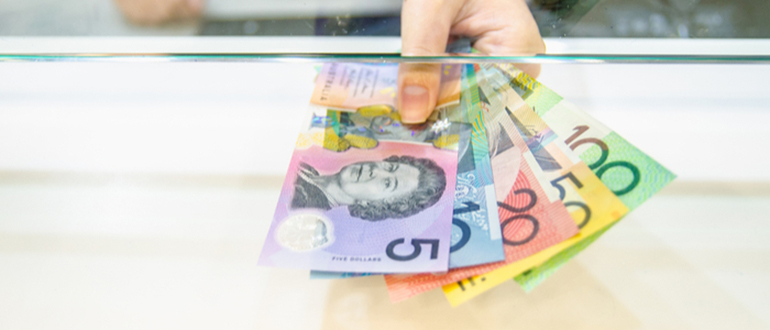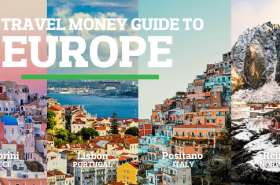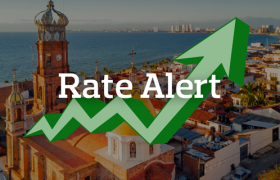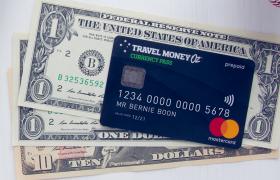Quick Contact

6th February 2017
You’ve saved for months for your big holiday – skipped those daily coffees and Friday night drinks, diligently putting money away for sightseeing and souvenirs. You’ve been dreaming about sunset cocktails on the beach in Fiji, road tripping Route 66 in the USA, or sampling the best of Italy’s food and wine.
Wherever you’re going, you will need to arrange travel money before you go or when you get there, and if you want to make the most of your travel funds, there are a few things you should keep in mind, both before you go and while you’re travelling, so that you can minimise foreign exchange risk and money dramas on your well earned holiday.
Getting Ripped Off Before You Go
The easier it is to get sorted for your holiday, the better. But, when it comes to foreign exchange, the easy options can often be a rip off!
It may seem easiest to just use your regular debit or credit card overseas – the rate looks ok before you go, and it’s a no-fuss option. Then after your trip you realise you’ve been stung by a hidden currency conversion charge on top of the exchange rate and suddenly everything you bought was that little bit more expensive than you thought!
The other seemingly easy option is to just change money at the airport before you fly out, but that is also one to avoid, as you’ll most likely pay for that convenience with high fees and unfavourable exchange rates.
How to avoid hidden costs
Before you go, check out what your bank charges for using your cards overseas (yes, read that fine print, or give them a ring to ask some questions). Compare exchange rates online, and always ask if the price quoted includes fees or if any get added on. By doing a bit of research you may save yourself some coin – all the more to spend on your trip!
Getting Stung By Travel scams
Tourists make great targets for scammers. It may seem as if, to unscrupulous locals, you have “tourist” tattooed across your forehead, so you may be at risk for all sorts of scams that can leave you high and dry – overseas and without access to travel money.
Some common travel scams our customers encounter are:
- pickpockets;
- fake tickets to events;
- the conveniently confused taxi driver who gets lost and charges you more;
- friendly “bystanders” at ATMs who offer to help translate that foreign screen, all while memorising your PIN number and later pickpocketing your wallet.
How to avoid being stung by travel scams
The trick is to be alert, not alarmed! Before you go, check out if there are any travel alerts relating to safety and security for your destination. You can also do a bit of research of the kinds of scams that could happen. Travel Money Oz has simple currency destination guides with handy tips and things to consider. Traveller forums and websites can also provide you with good advice.
While overseas, it will help to be alert and aware of your surroundings and your belongings to avoid becoming the next scam victim.
Getting Ripped Off on Foreign Exchange on Your Trip
Sadly, there are dodgy money lenders out there taking advantage of tourists. Street vendors often try to take advantage of foreigners, the language gap and their lack of knowledge of the local currency. They may try to give you the wrong notes (especially if the currency has high denominations – it’s hard to keep track of all the zeros sometimes), or short change you on your exchange.
Other travel money scams to be alert for include:
- The market place foreign exchange vendor who is vague on the numbers and will not supply you a receipt.
- Local tour guides who take you to a local ‘money-changer’ and pressure you into using their foreign exchange service, while taking commission for getting you there.
How to avoid foreign exchange rip offs
When you’re overseas it may be hard to tell if the money exchanger is legit or not, so you can avoid this risk altogether and exchange your money with a reputable company before you go. At Travel Money Oz, we stock as many as 60+ currencies in our stores, so no matter how exotic your trip, we should be able to get you sorted before you go.
If you do need to get more travel money while you’re overseas, look for a bank or recognisable foreign exchange brand, and always double check what you have been given.
If you’re not comfortable carrying a large amount of cash, remember prepaid travel money cards offer a safer and more secure way to carry some major international foreign currencies.
Paying more than you need to on foreign exchange
Sometimes you will be given the option to pay in the local currency, or to pay in AUD. While paying in your own currency may seem like the easy option (you know how much you are paying for things without having to do exchange conversions in your head), often it will land up costing you more than if you paid in the local currency.
That is because the vendor gets to set the exchange rate conversion and it’s unlikely to be the best exchange rate around - you’ll probably find a better rate at a bank or foreign exchange company.
How to avoid paying too much
It’s preferable to always select to pay in the local currency! This is especially true if you’re using a prepaid currency or travel money card!
No Money Left On Your Travel Card
A massive advantage of a prepaid travel money card is that when your funds run low, you can easily top it up. But all too often, we forget that reloads can sometimes take a few days to clear the banking system.
Depending how you pay for your card reload, it can take a couple of days for your travel money to become available to you. For example, if you pay via BPAY, it can take 2 to 3 business days for your funds to clear through the banking system and to be available on your travel money card.
If you leave it too late to top up your funds on your card, you could find yourself stuck without access to money for a few days!
How to avoid zero balances
If you have a Key to the World Currency Card, just register online and also download the app – then you can easily keep on top of how much money you have on your card and not leave it until it’s too late and your account is empty.
You can use BPAY to schedule an advance transfer/ load, e.g. for when you get paid, but remember it will exchange into the default currency you have set, and you will get the exchange rate available on the day of the load.
Alternatively, you may be able to pay for your reload using your debit or credit card (where available), and in that case your funds will be available immediately.
In the case of any disasters while you are on your trip, it is always worth purchasing travel insurance before you go. Talk to one of our friendly FXperts in store to help find suitable cover for you. Alternatively, if you have a Key to the World Currency Card, there is the added benefit of having access to your travel insurance details online, all in the one app, wherever you go.
This blog is provided for information only and does not take into consideration your objectives, financial situation or needs. You should consider whether the information and suggestions contained in any blog entry are appropriate for you, having regard to your own objectives, financial situation and needs. While we take reasonable care in providing the blog, we give no warranties or representations that it is complete or accurate, or is appropriate for you. We are not liable for any loss caused, whether due to negligence or otherwise, arising from use of, or reliance on, the information and/or suggestions contained in this blog.
